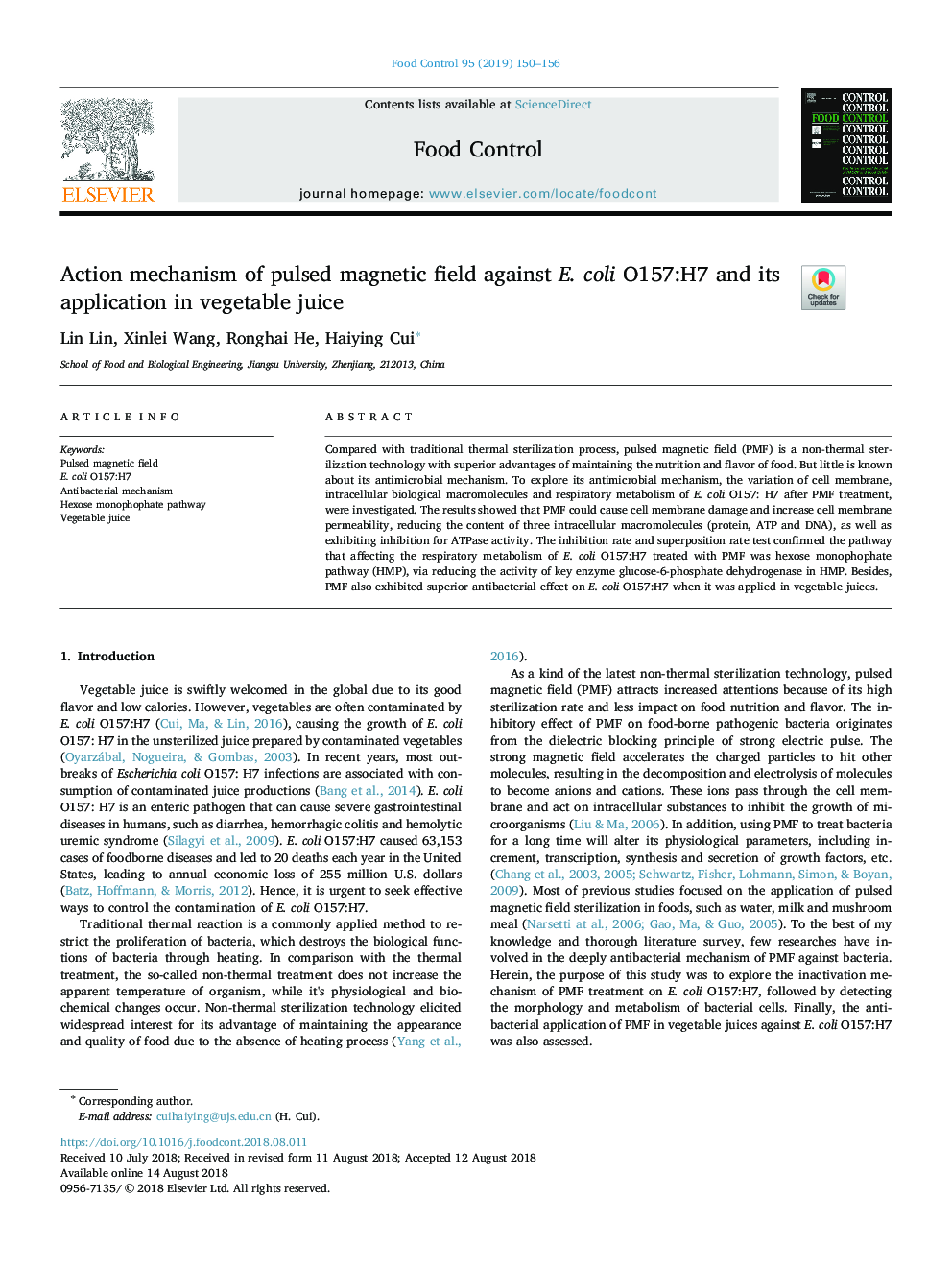| Article ID | Journal | Published Year | Pages | File Type |
|---|---|---|---|---|
| 8887652 | Food Control | 2019 | 7 Pages |
Abstract
Compared with traditional thermal sterilization process, pulsed magnetic field (PMF) is a non-thermal sterilization technology with superior advantages of maintaining the nutrition and flavor of food. But little is known about its antimicrobial mechanism. To explore its antimicrobial mechanism, the variation of cell membrane, intracellular biological macromolecules and respiratory metabolism of E. coli O157: H7 after PMF treatment, were investigated. The results showed that PMF could cause cell membrane damage and increase cell membrane permeability, reducing the content of three intracellular macromolecules (protein, ATP and DNA), as well as exhibiting inhibition for ATPase activity. The inhibition rate and superposition rate test confirmed the pathway that affecting the respiratory metabolism of E. coli O157:H7 treated with PMF was hexose monophophate pathway (HMP), via reducing the activity of key enzyme glucose-6-phosphate dehydrogenase in HMP. Besides, PMF also exhibited superior antibacterial effect on E. coli O157:H7 when it was applied in vegetable juices.
Related Topics
Life Sciences
Agricultural and Biological Sciences
Food Science
Authors
Lin Lin, Xinlei Wang, Ronghai He, Haiying Cui,
